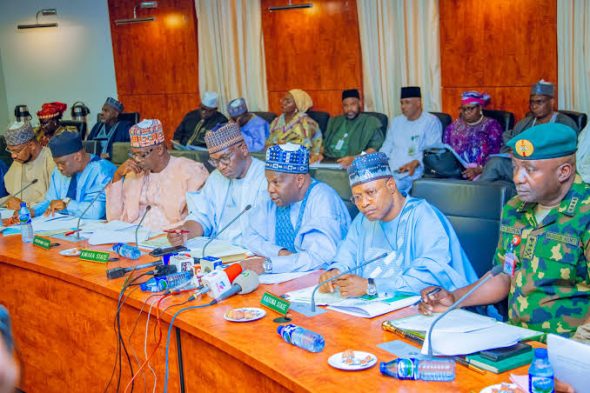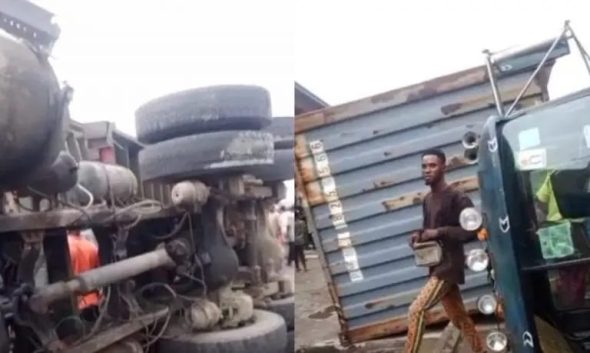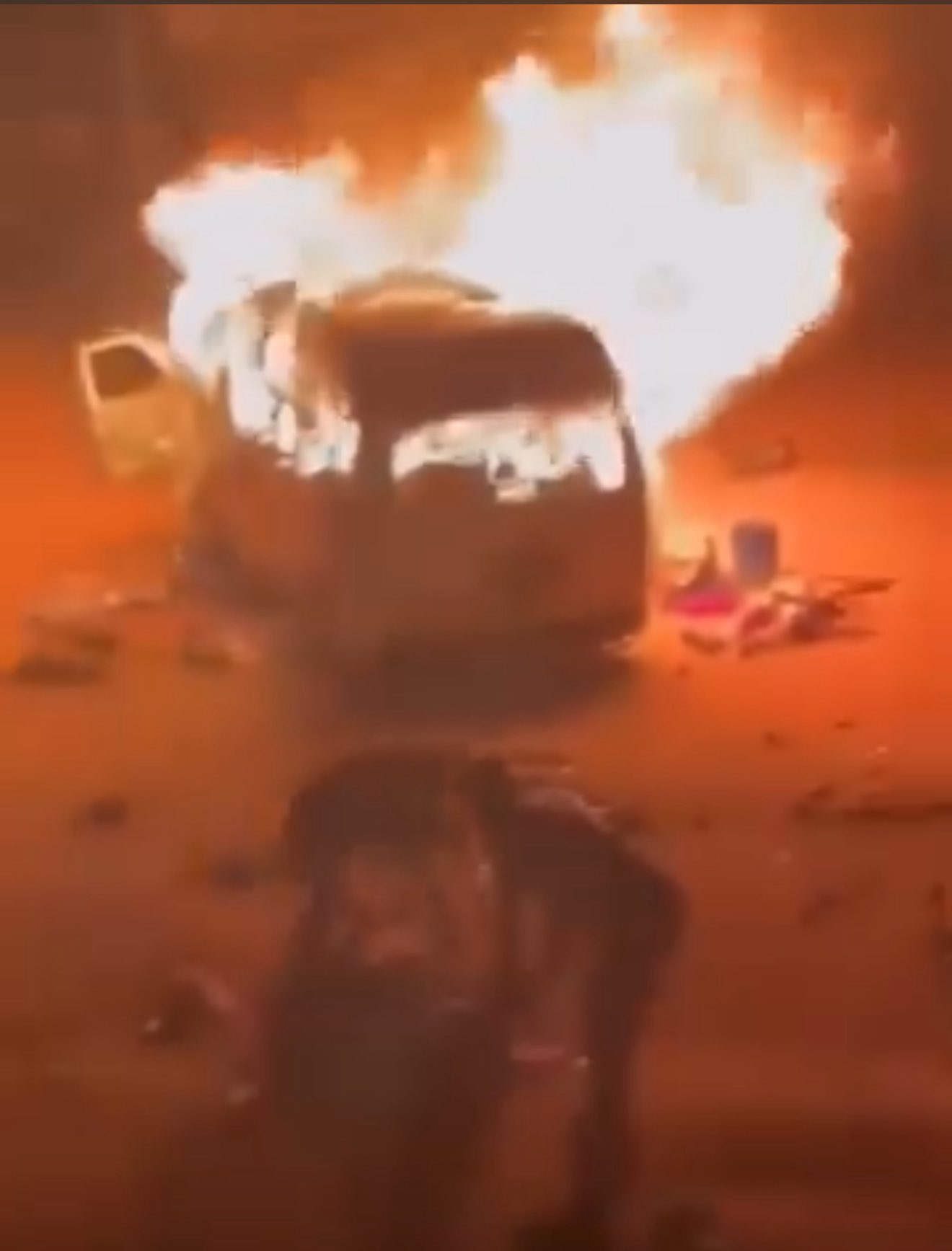
Daniel Otera
A violent mob attack in Mangu Local Government Area of Plateau State has left at least 12 wedding guests from Kaduna State dead, sparking widespread outrage and renewed calls for justice.
The incident, which took place on the evening of Friday, 20 June, has heightened concerns about the rising wave of communal violence and impunity in central Nigeria.
According to security reports and local sources, the victims including men, women, and children were travelling in an 18-seater bus owned by Ahmadu Bello University, Zaria. The group of 31 was en route to a wedding ceremony in Qua’an Pan Local Government Area of Plateau State when they reportedly missed their way and stopped to ask for directions in Mangun District, Mangu LGA.
Eyewitnesses said the bus was surrounded and attacked by a mob, with several passengers killed and the vehicle set ablaze. One survivor, Ibrahim Umar, recounted:
“They killed the driver first, then set the bus on fire with people inside.”
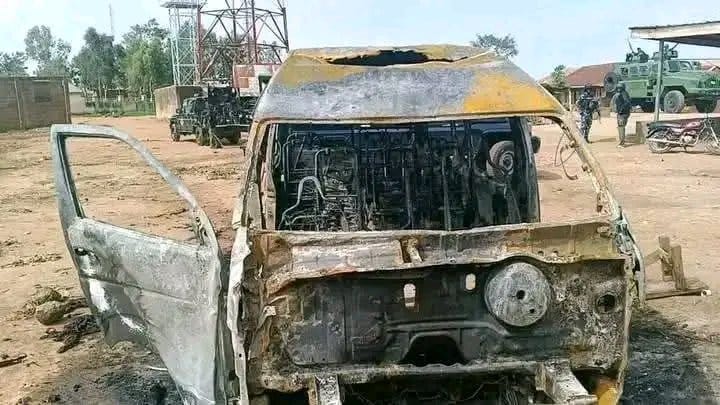
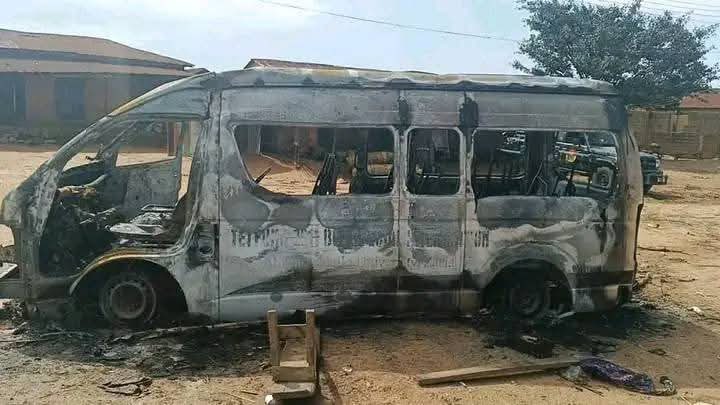
Initial reports indicate that 12 people were killed, 11 sustained various injuries, and 14 were rescued unhurt. The Chief Imam of Jama’atu Izalatil Bid’a Wa’ikamatis Sunnah (JIBWIS) in Mangu, Sheikh Suleiman Haruna, confirmed that eight bodies were deposited at Mangu General Hospital, with search efforts ongoing.
Some survivors were hospitalised with machete cuts and burns, while others remain in critical condition.
The Plateau State Police Command has confirmed the arrest of 22 suspects in connection with the incident.
A statement from the command noted that tactical teams, including personnel from the State Intelligence Department and State Criminal Investigation Department, have been deployed to support ongoing investigations.
Police Commissioner Emmanuel Olugbemiga Adesina visited the scene on Saturday, accompanied by senior security officials. The command assured the public that all those responsible would be prosecuted and warned against reprisals or further lawlessness.
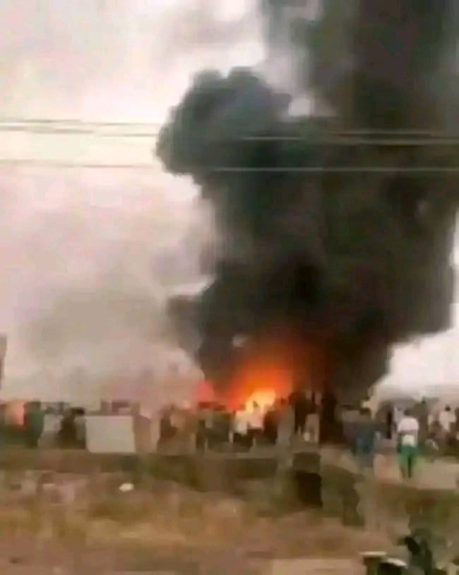
This latest attack bears a chilling resemblance to a 2021 tragedy in Plateau State, when 22 Muslim travellers returning from an Islamic prayer event in Bauchi were ambushed and killed along Rukuba Road in Jos North LGA. According to Premium Times, the victims were part of a convoy heading to Ondo State before being attacked by suspected youths.
Rights groups argue that the failure to ensure accountability in such killings has emboldened non-state actors and intensified reprisal violence.
Amnesty International has called for an independent, impartial investigation into the Mangu killings, urging Nigerian authorities to act beyond mere condemnation.
“The failure to prosecute those responsible for similar attacks in the past has only deepened insecurity,” Amnesty stated on its verified social media platform.
The organisation also demanded urgent medical care for the injured and protection for survivors.
Kaduna State Governor, Uba Sani, described the killings as “savagery” and “an affront to the rule of law.” In a statement on his official Facebook page, Governor Sani urged security agencies to ensure those behind the attack are swiftly brought to justice.
“This madness must stop,” he declared, adding that Kaduna State would support the victims’ families and ensure proper medical care for the wounded.
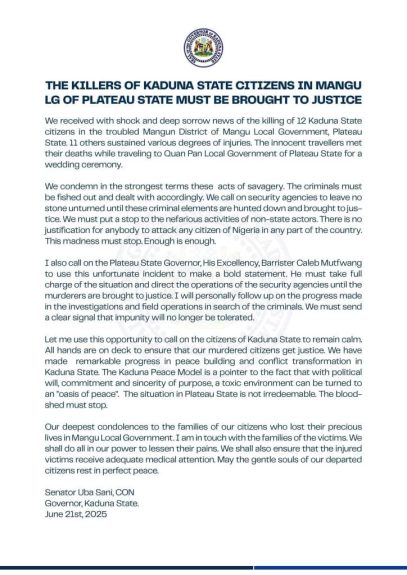
Plateau State Governor, Caleb Mutfwang, also condemned the attack and extended condolences to the Emir of Zazzau and the Kaduna State Government.
He pledged to work with security agencies to bring the perpetrators to justice and to strengthen preventive security measures across the state.
The tragedy highlights growing insecurity in Nigeria’s Middle Belt, where ethno-religious and land-based tensions have escalated into deadly conflicts involving armed groups, criminal gangs, and retaliatory attacks.
According to the Nigeria Security Tracker maintained by the Council on Foreign Relations, Plateau, Benue, and Kaduna have consistently recorded high levels of communal violence. Although the tracker ceased updates in mid-2023, independent assessments continue to expose the scale of killings.
A May 2025 report by Amnesty International revealed that at least 6,896 people were killed in Benue and 2,630 in Plateau since President Bola Tinubu took office in 2023.
In April 2025, Reuters reported the killing of 51 villagers in Plateau State, while Vanguard noted that 144 people were killed across Plateau and Benue within just two weeks – underlining the deepening crisis.
While the motive behind the Mangu attack remains under investigation, the broader context of volatility raises questions about intelligence coordination, law enforcement readiness, and the effectiveness of early warning systems.
Several communities in Plateau – especially in Mangu, Barkin Ladi, and Riyom LGAs have faced repeated attacks over the years, often amid complaints of slow security response.
According to a report by the United States Institute of Peace (USIP), early warning and response systems in Plateau and Kaduna have helped prevent large-scale conflicts in some cases. Yet, experts say these efforts are still insufficient.
A recent Conclave analysis called for proactive, knowledge-driven conflict prevention strategies, urging the institutionalisation of community-based mediation and accountability mechanisms. Similarly, the Nigeria Risk Index flagged communal tensions and poor conflict management frameworks as major risk factors for future violence.
As investigations continue, families of the victims, civil society groups, and citizens across the country are demanding accountability.
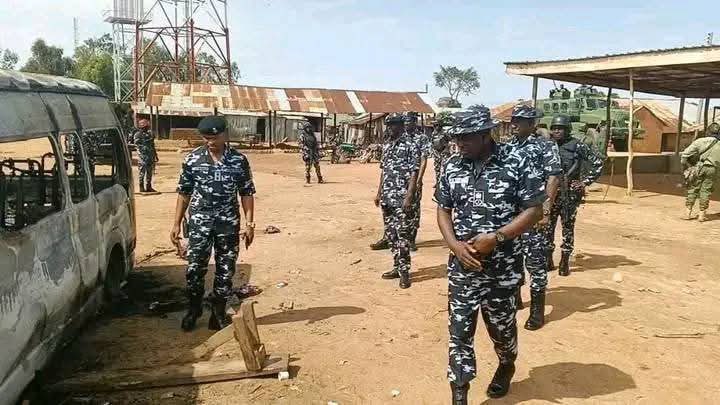
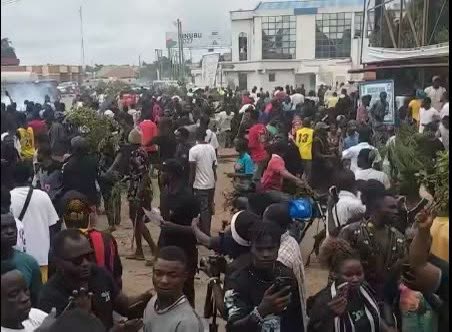
The Plateau Police Command has urged the public to provide relevant information and to avoid acts of retaliation.
Emergency contact numbers have also been published by authorities to improve rapid response and coordination.
While Kaduna and Plateau States mourn the loss of innocent lives, the incident raises broader concerns about inter-state travel safety, social cohesion, and the fragile state of national security in Nigeria’s most vulnerable regions.

